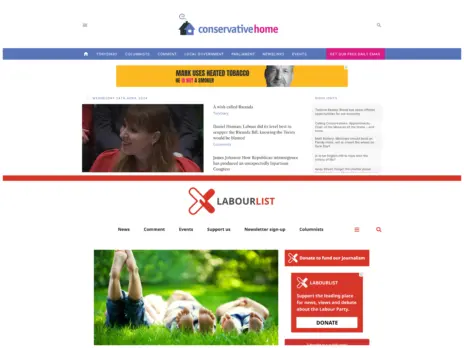-
Council used RIPA to OK surveillance of reporter meeting sources in cafe
-
Derby City Council joins four police forces in admitting RIPA use against a journalist
-
RIPA intended to tackle 'serious crime' but used here to 'protect council's interests'
A former regional newspaper journalist believes a council spied on her meeting with local authority staff under the Regulation of Investigatory Powers Act in order to "scupper" her investigations.
Two Derby City Council employees watched the Derby Telegraph's local government correspondent Kirsty Green meeting four current and former council employees in a popular Starbucks coffee shop.
She was investigating allegations of wrongdoing within the council's environmental services department.
She told Press Gazette that after becoming aware they were being watched, some of her contacts were put off speaking to her again.
Derby City Council staff made an application under RIPA, which would have been signed off internally, in order to carry out the June 2009 surveillance.
RIPA can be used for the "interest of national security, the prevention or detection of serious crime or the economic well-being of the UK". But the Derby local authority excused this use of RIPA by saying officials believed "they were protecting the council's interests".
Over the past two months, four police forces have admitted to using RIPA – which can be used to obtain phone records, bug people and follow people, among other powers – in order to expose journalists' sources. The journalists concerned were not found to have broken the law in any of these cases.
But this is the first case in which a council has admitted using RIPA powers against a journalist.
Green told Press Gazette today how, when confronted in the car park of Starbucks in Pride Park, the two internal audit council workers quoted RIPA legislation to explain their presence.
The Derby Telegraph took issue when a Freedom of Information request showed that the council had intended to watch her as well as the employees.
The Telegraph quoted an internal council record as saying: “All persons named did in fact meet with the known reporter from the Derby Evening Telegraph.”
The council told Press Gazette they had nothing to add to their statement of 2010, which said: "The RIPA process was used on this occasion as an immediate response by individual officers to a set of circumstances.
"Officers acted believing they were protecting the council's interests. It is now clear we no longer need to rely on these powers where matters relate to internal functions of the council."
Green, who left the paper in 2012, told Press Gazette she believes the RIPA surveillance “certainly appears” to have been approved swiftly.
She believes a senior council official spotted the group of five and was able to get a RIPA application approved internally in time for the two workers to drive to the busy coffee shop and watch from their car.
“They were quite blatant,” she said. “We were sat in a coffee shop with large glass windows having a meeting and when we looked outside we could see one of the cars in the car park had two people sitting in it.
“When we walked out we walked a bit closer to the car and I recognised one of the guys inside was from internal audit at the council. And I’d dealt with him a lot before in meetings, so knew him by face and name.
“And one of the people I was meeting spoke to the guy in the car, knocked on the car window, and said: ‘What are you doing? Why are you watching us? You’ve clearly come here, you’ve watched us walk out.’
“Rather than making up anything, or saying that they were there for a coffee or anything else, they actually said: ‘Well, we’ve got the right.’
“And they [the council worker she was meeting] said: ‘What authority gives you the right to come and watch us, what’s it got to do with you?’ And they actually quoted RIPA legislation. They actually said that openly to us.”
Green believes her story is different to the four cases of police forces using RIPA against journalists because rather than operating secretly the council wanted her sources to be aware of the surveillance against them. Green described this RIPA use as “overt, almost”.
“It was unnerving at the time to think that they’d done that, and my problem with it was I’d been trying to obviously put the people I was interviewing at ease,” she said.
“Some of these people hadn’t met me before, some had, so the fact that they were then put in a situation where they were being watched by internal audit automatically made me feel uncomfortable because they were uncomfortable.”
Asked if she believes the use of RIPA will discourage would-be whistleblowers from approaching the press, Green said: “That’s exactly what happened in my instance. One of the people that I was hoping to meet again actually cancelled the next meeting a few days later because they were so unnerved by it and upset. So they didn’t want to go any further with it."
She added: “For me, it was the fact that I felt they didn’t need to use RIPA for that, they didn’t need to be so overt almost – I mean we recognised them.
“And I think it was almost a point of them putting people off so that people didn’t want to speak to me.
“As a journalist I didn’t really want to go meeting people in dodgy looking places covertly, because I’m trying to put them at ease, so a nice coffee shop in public where they feel safe with me – they don’t know who I am when I turn up.
“So I felt the act of doing that [spying under RIPA] deliberately impacted on my job and what I was trying to do. So that’s what made me unhappy and frustrated.”
Green is no longer a journalist, but has been following the recent RIPA revelations.
She believes it is being used in a way that could hinder journalists' ability to “hold the account” councils and the Government.
Green said: “I know people often knock journalists, but that’s often the people that are doing [holding authority to account]. It’s not an easy process – it takes a lot of chopping away. That story that I had been doing I’d been working on for months and years. And I’d been doing a lot of my own FoI requests to chip away at it and when you’re so close to building up a much bigger picture, I’d only scratched the surface at the time.
“Then people are using these [powers] to scupper, how it appeared to me at the time, it does make you worry that from a local government scale. So when you blow that up to national government scale it is worrying.”
Conservative peer Lord Black of Brentwood condemned Derby City Council's use of RIPA in this case last night in the House of Lords.
He said: "That council used RIPA powers to do that because they give local authorities the right to watch and record people covertly.
"Just think about the disastrous impact on local press reporting of local authorities if such sources of information dried up."
Email pged@pressgazette.co.uk to point out mistakes, provide story tips or send in a letter for publication on our "Letters Page" blog






